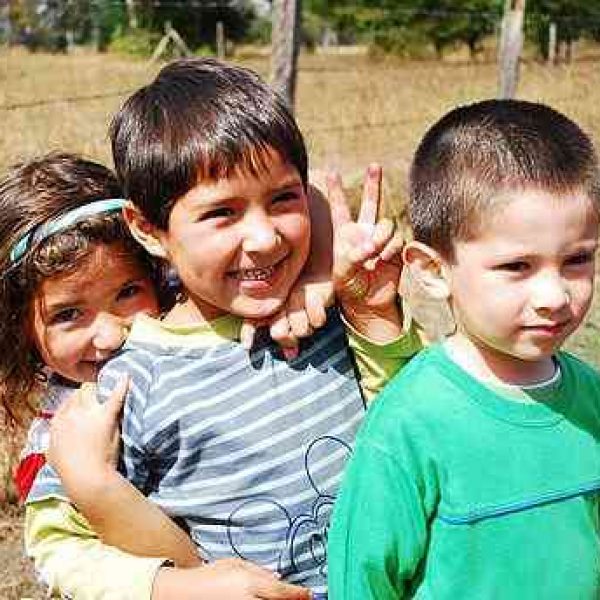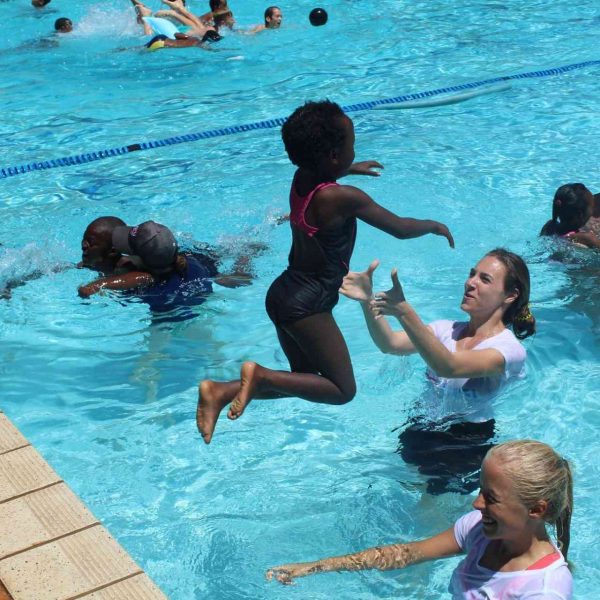Letter From Aleppo No 46 (March 15, 2023)
Forty-five seconds were enough to put the entire population of Aleppo on the streets.
It was 4:17 a.m. on Monday, February 6, 2023; it was night; it was raining; it was cold, 2 degrees Celsius. And the EARTH TREMBLED. Buildings collapse, others move, especially the upper floors; furniture dance; paintings fall to the ground; glasses shatter; walls are cracking; stones or bits of cement or plaster fall from walls and ceilings injuring the inhabitants; bottles of oil, syrup, detergents come out of their cupboards in the kitchen and above all the deafening noise, a terrifying noise, the noise of doors slamming, windows opening; and it lasted, lasted 45 seconds like an eternity.
The sleeping Aleppins woke up with a startle: the children were screaming; the adults were terrified not knowing what was happening until they realized it was an earthquake (Zelzal in Arabic). It’s the panic. People run, go down the stairs, jostle, some fall and break their limbs; and everyone, two million people, find themselves on the streets in their pajamas and some barefoot, in the rain and the cold. Buildings are collapsing, upper floors are falling, stones are raining down from above injuring or killing people taking refuge in the street.
It’s a chaos. Those who own a car want to flee their neighborhoods to park in vacant lots with no buildings around; traffic jams slow the escape. The others try to take refuge in public parks, in churches or mosques. The main avenues have, since, been filled with cars parked along the sidewalks with families spending the night in their cars. Thousands of families have pitched tents in all the empty lots and have been living there since the earthquake. The main sports stadiums in Aleppo are crowded with thousands of families. Almost the entire population of Aleppo spent days “on the streets”.
We learned later that the earthquake was of a magnitude of 7.8 on the Richter scale with its epicenter in a city in southern Turkey roughly 100 km north of Aleppo.
Less than half an hour after the earthquake, we, the Blue Marists, opened the doors of our residence to welcome those who wanted to take refuge with us; we spread the word on different social networks and answered dozens of phone calls to say: “you are welcome to our place”. In a few hours, more than a thousand people, from all religions, numbed by the cold, soaked by the rain, trembling with fear, shouting and crying, came; quickly, our volunteers rushed and distributed a hot drink and the few blankets and mattresses that we had; and it was necessary to comfort, calm, reassure and listen; and keep people warm in all the rooms of the residence including the kitchen. Fortunately, the two courtyards of the convent are covered; those who had no place inside took refuge there on chairs while waiting for sunrise. In the morning, we had to feed everyone, cook for a thousand people, provide milk to the children, find blankets and mattresses for everyone, and make room for all for the following night. The people were barely a little calmer when a 2nd earthquake with a magnitude of 7.7 occurred at 1:24 p.m. Aleppo had not experienced such an earthquake since 1822.
In the following weeks, small tremors took place every day sowing fear in the population until Monday, February 20, when a 3rd earthquake of a magnitude of 6.3 occurred at 8:04 p.m.
The toll of these earthquakes amount, in Aleppo alone, to 458 deaths, more than a thousand injured, 60 buildings collapsed and completely destroyed, hundreds of non-repairable buildings to be torn down, thousands of buildings severely damaged and uninhabitable in their current state and hundreds of thousands of people who no longer live in their homes. Even though, seen from the outside, buildings are intact, many cannot be inhabited because the foundations, the stairwells or the load-bearing walls are damaged.
Apart from Aleppo, several other Syrian cities have been affected, in particular Latakia, Hama and Jablé, in which Sixteen buildings in the same complex collapsed in the killing 15 doctors and 16 pharmacists.
For more than 20 days, our residence welcomed hundreds of people whose numbers varied based on comers and goers. To welcome, feed, dress (people had only the clothes they were wearing), treat, offer the possibility of a hot bath with new clothes and undergarments, comfort, take care of children, organize the dormitories were our daily tasks.
Many families stayed with us because they were afraid to return home expecting a 4th earthquake; others had their homes badly damaged or their buildings
completely on the ground. Then, we created a committee of Blue Marist engineers to go and inspect the apartments of the displaced. If the state of the apartment is acceptable, we reassure people and ask them to go home. If the apartments are uninhabitable, we rent for them an apartment for one year, until we can make the necessary repairs. Other associations and churches have done the same.
For four weeks, we put on hold our usual projects to relieve the suffering and assist the displaced. But for the past week, we have been slowly resuming our activities despite the dejection of our volunteers and our beneficiaries.
Apart from the very heavy human and material toll, the psychological trauma in all ages is very important. Now, 35 days after the earthquake, adults and children are still shocked, anxious, desperate, having nightmares and thinking the worst is yet to come.
The Red Crescent and many associations and charities have mobilized, like us, to help the hundreds of thousands of displaced people housed in hosting centers; a mobilization like we have never seen.
The solidarity and generosity of other Syrian cities towards us as well as those of our neighbors in Lebanon and Iraq have been exemplary.
In addition, Syrians in the diaspora have, from day one, organized collections of money and aides, and have undertaken initiatives to send us funds.
Our Western friends have done the same with great generosity. Without forgetting the very important role of many charities and international solidarity associations, especially Christian ones, who have worked hard more than ever to meet our basic needs.
Friendly countries have sent help and rubble removal teams or medical teams. Around 100 planes landed at Aleppo’s airport from Morocco, Tunisia, Algeria, Jordan, Egypt, Venezuela and even Bangladesh to name a few. Then, Aleppo’s airport, where planes bringing assistance landed, was recently bombed by our southern neighbors, making it unusable!
While hundreds of Western planes brought relief to Turkey, only one European plane landed in Syria. What a shame!! Were the rulers of the countries of human rights and “democracy” convinced that the affected population of Syria suffered less than that of Turkey because they live in a country under sanctions? Couldn’t they set aside their sanctions to provide humanitarian assistance to a population suffering from a natural disaster? It is outrageous, to say the least. These countries had claimed for years that humanitarian aid and medical equipment were exempt from sanctions. First this is not true. On the other hand, if this was true, why did they ease the sanctions, for 180 days, for humanitarian aid if it was already exempted?
Fortunately, the men and women of these countries reacted differently from their leaders, and they showed exemplary solidarity and generosity.
These sanctions, imposed unilaterally for more than 10 years by Western countries on the Syrian people and Syria, are ineffective and unjust; they have impoverished the population, which is suffering from a very serious economic crisis due to the lack of foreign investment prohibited by the sanctions.
They make us suffer by putting an embargo on many products, leading to a shortage of fuel oil, gasoline, bread, and electricity.
The sanctions kill: most of the buildings that collapsed during the earthquake were badly damaged by the war, but were inhabited by people who had no other choice; these buildings (and there are tens of thousands of them) could not be rebuilt because reconstruction is prohibited by those sanctions; not to mention the dozens of people buried alive under the rubble and dead because they were not rescued in time, for lack of heavy machinery to clear the wreckage.
Like today, March 15, 2011, 12 years ago, the events in Syria began: the Syrian population has suffered enough since then and is exhausted: the years of war, the sanctions and shortage, the economic crisis, Covid-19, Cholera and now the earthquake. What a misfortune this is for a country that was once beautiful, prosperous, safe and sovereign.
Forty-five seconds were enough to put the entire population of Aleppo on the street; a population already on the ground after 12 years of tragedy and misfortune. But the Syrian people are a proud and dignified, even in adversity. They ask nothing more than to be able to live again normally in peace.
Help us get the sanctions lifted.
Thank you for your friendship and solidarity.
Aleppo March 15, 2023
Dr. Nabil Antaki, For the Blue Marists



